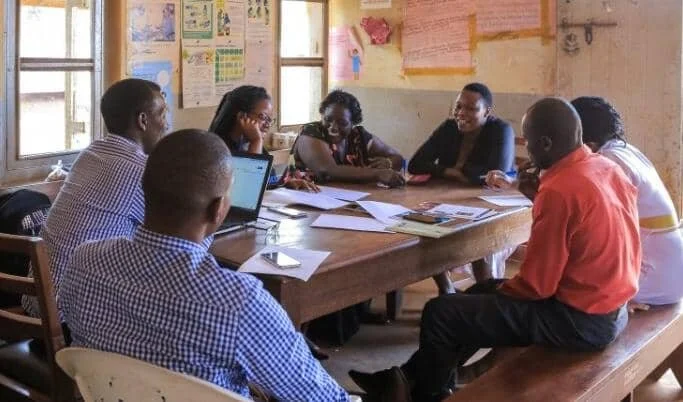She’s Helping Mothers Access Affordable, Mobile Ultrasounds
Raised by a single mom, Phyllis Kyomuhendo always had “a soft spot for the well-being of women,” as she puts it.
Growing up in Kampala, Phyllis became increasingly interested in public health, noticing a clear lack of information about health services and safety measures among her peers.
“Many young adults shy away from health education, especially when it comes to sexual and reproductive health,” Phyllis says. “Getting them to participate is a big challenge.
“In Uganda, many people are also not informed about different family planning methods,” Phyllis says. “That’s why we need health education to challenge misconceptions and make an impact.”
Phyllis, a 2019 Mandela Washington Fellow, got to work addressing these issues and in 2018 founded M-SCAN Uganda, a startup aimed at reducing maternal and neonatal mortality through the production of low-cost, mobile ultrasound devices.
With these tools in hand, women across the country are better equipped to learn about and discuss critical health topics, as Phyllis explains.
Among the most pressing issues she still faces, though, is reminding new mothers to take advantage of the health services available to them.
“Many Ugandans after their first child do not feel the need to attend antenatal classes or go to the hospital because they feel like their first pregnancy gave them enough experience,” Phyllis says.
“But pregnancy complications can happen at any time and are best detected early.”
In moments of challenge, Phyllis returns to her mother’s story, one of perseverance and tenacity.
“My mum has a Ph.D. in geo-information and is a trailblazer in environmental technology. She deals in earth science, astronomy, and using drones for agricultural and environmental purposes,” Phyllis says. “Her resilience and determination inspire me because she did all this as a single mother.”
In her own work, Phyllis strives for a similar kind of excellence, namely, making it easier for women across Uganda to gain access to the tools and services they need to live healthy, full lives.
“My advice to other young leaders is to always listen to patients; their advice is priceless and will be vital in the success of a product or service.”
“Young women have the power to influence the nation on health rights,” Phyllis says. “If they speak up in large numbers, their voices can be heard and a change can be made.”
The views and opinions expressed here belong to the interviewee and do not necessarily reflect those of The Youth Cafe.


